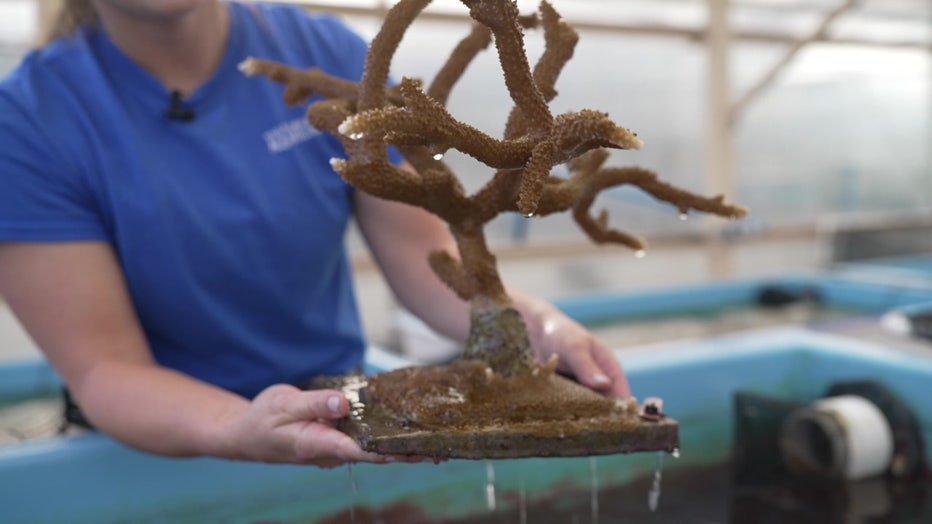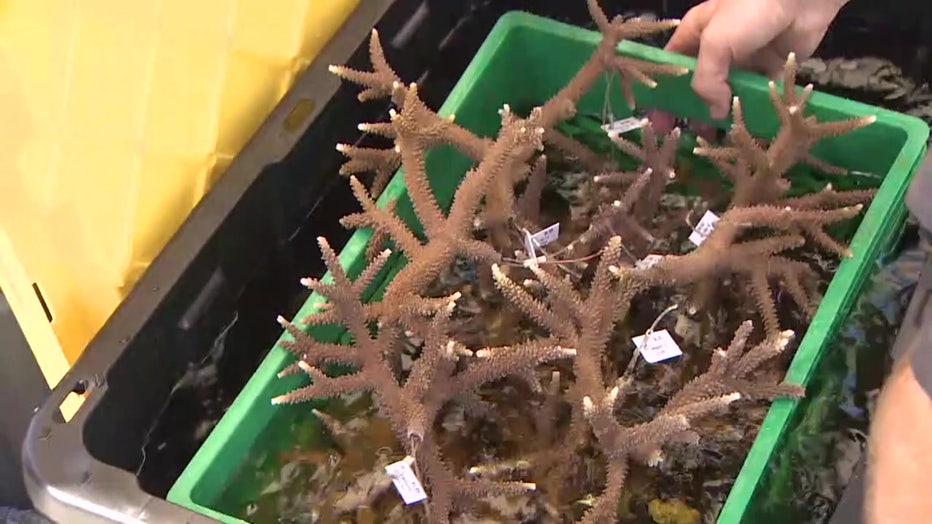The Florida Aquarium helps care for corals removed from overheated waters

Rescuing coral reefs
In response to the alarming rise in water temperatures threatening coral reefs, the Florida Aquarium recently sprang into action to assist their partners in the Keys.
TAMPA, Fla. - In response to the alarming rise in water temperatures threatening coral reefs, the Florida Aquarium recently sprang into action to assist their partners in the Keys.
"We are in about a level two danger zone for our corals. So that means that we are being called into action to help those animals that are in the wild," explained Jessica Sandelli a Coral biologist Florida Aquarium.
READ: Wetlands protection cuts to be voted on by Manatee County commissioners

The Florida Aquarium was working out of the Keyes Marine lab in Layton, Florida.
The Florida Aquarium is a key member of the HeaRT team, a public-private partnership between the Association of Zoos and Aquariums with the Fish and Wildlife Foundation of Florida. They swiftly mobilized to aid coral care centers, notably the Keys Marine Laboratory.
Faced with the urgent need to save coral species, coral restoration partners removed thousands of corals from their ocean nurseries into temperature-controlled aquariums at Keys Marine Laboratory in July and August. The Florida Aquarium is part of the international effort to provide care for corals that were temporarily moved out of the ocean and onto land, aiming to save these vital marine animals from the adverse effects of extreme warmth.

The heat crisis that is going on right now is hard on coral reefs.
"Climate change and ocean temperature can seem really, really overwhelming, but it matters when we respond and when we work together. The amount of work that we have been able to do in the last couple months, and we'll continue to do together is ultimately going to save the species and hopefully provide them an opportunity to recover and be returning to the ocean," said Sandelli.
READ: Tampa Bay Watch re-purposes discarded oyster shells, rebuilds coastline
Arriving in coordinated waves, experts from The Florida Aquarium and organizations across four states and the Bahamas diligently assessed the state of the rescued corals. Their meticulous evaluation serves as the foundation for tailored care strategies, ensuring the corals receive the necessary attention to thrive.
This collaborative effort highlights the dedication of these organizations in preserving the delicate balance of marine ecosystems and underscores the importance of proactive measures in the face of climate-induced challenges.

